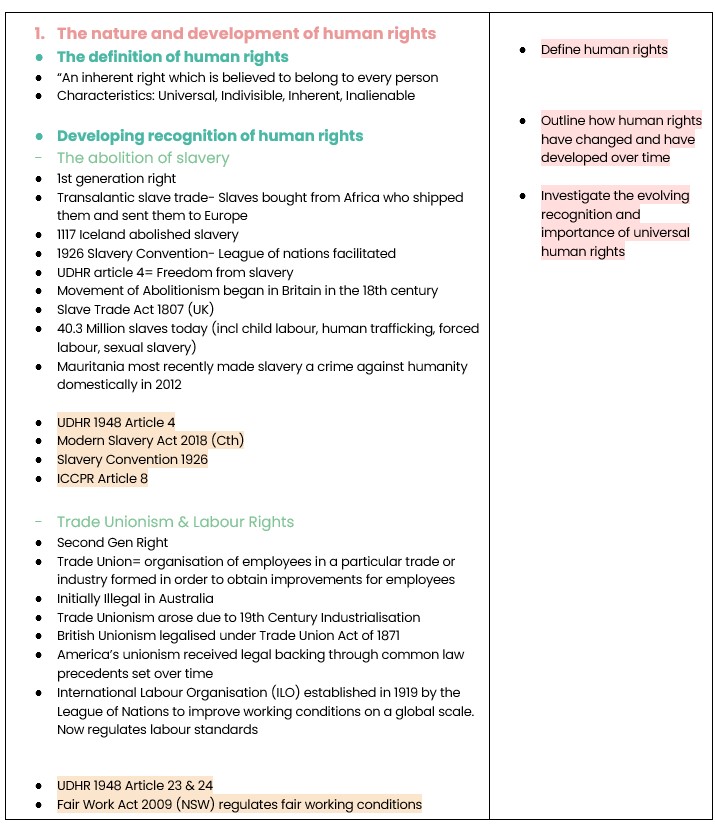HSC Legal Studies Human Rights
Summary:
These comprehensive Human Rights notes are a valuable resource for students studying the HSC Legal Studies course. Authored by a high-achieving student with an impressive ATAR of 93.85 and obtaining a remarkable mark of 95 in HSC Legal Studies, these notes provide detailed coverage of the entire Human Rights topic. Spanning 24 pages, the notes encompass theory, legislation, reforms, media articles, cases, and international instruments.
Covering essential areas such as the history of human rights, international human rights law, domestic human rights protections, and contemporary human rights issues, these notes offer a comprehensive understanding of Human Rights principles. By including theory, legislation, reforms, media articles, cases, and international instruments, the notes provide a well-rounded perspective on the subject.
Excerpt:
HSC Legal Studies Human Rights
- The nature and development of human rights
- The definition of human rights
- “An inherent right which is believed to belong to every person
- Characteristics: Universal, Indivisible, Inherent, Inalienable
- Developing recognition of human rights
- The abolition of slavery
- 1st generation right
- Transalantic slave trade- Slaves bought from Africa who shipped them and sent them to Europe
- 1117 Iceland abolished slavery
- 1926 Slavery Convention- League of nations facilitated
- UDHR article 4= Freedom from slavery
- Movement of Abolitionism began in Britain in the 18th century
- Slave Trade Act 1807 (UK)
- 3 Million slaves today (incl child labour, human trafficking, forced labour, sexual slavery)
- Mauritania most recently made slavery a crime against humanity domestically in 2012
- UDHR 1948 Article 4
- Modern Slavery Act 2018 (Cth)
- Slavery Convention 1926
- ICCPR Article 8
- Trade Unionism & Labour Rights
- Second Gen Right
- Trade Union= organisation of employees in a particular trade or industry formed in order to obtain improvements for employees
- Initially Illegal in Australia
- Trade Unionism arose due to 19th Century Industrialisation
- British Unionism was legalised under the Trade Union Act of 1871
- America’s unionism received legal backing through common law precedents set over time
- International Labour Organisation (ILO) was established in 1919 by the League of Nations to improve working conditions on a global scale. Now regulates labour standards


Reviews